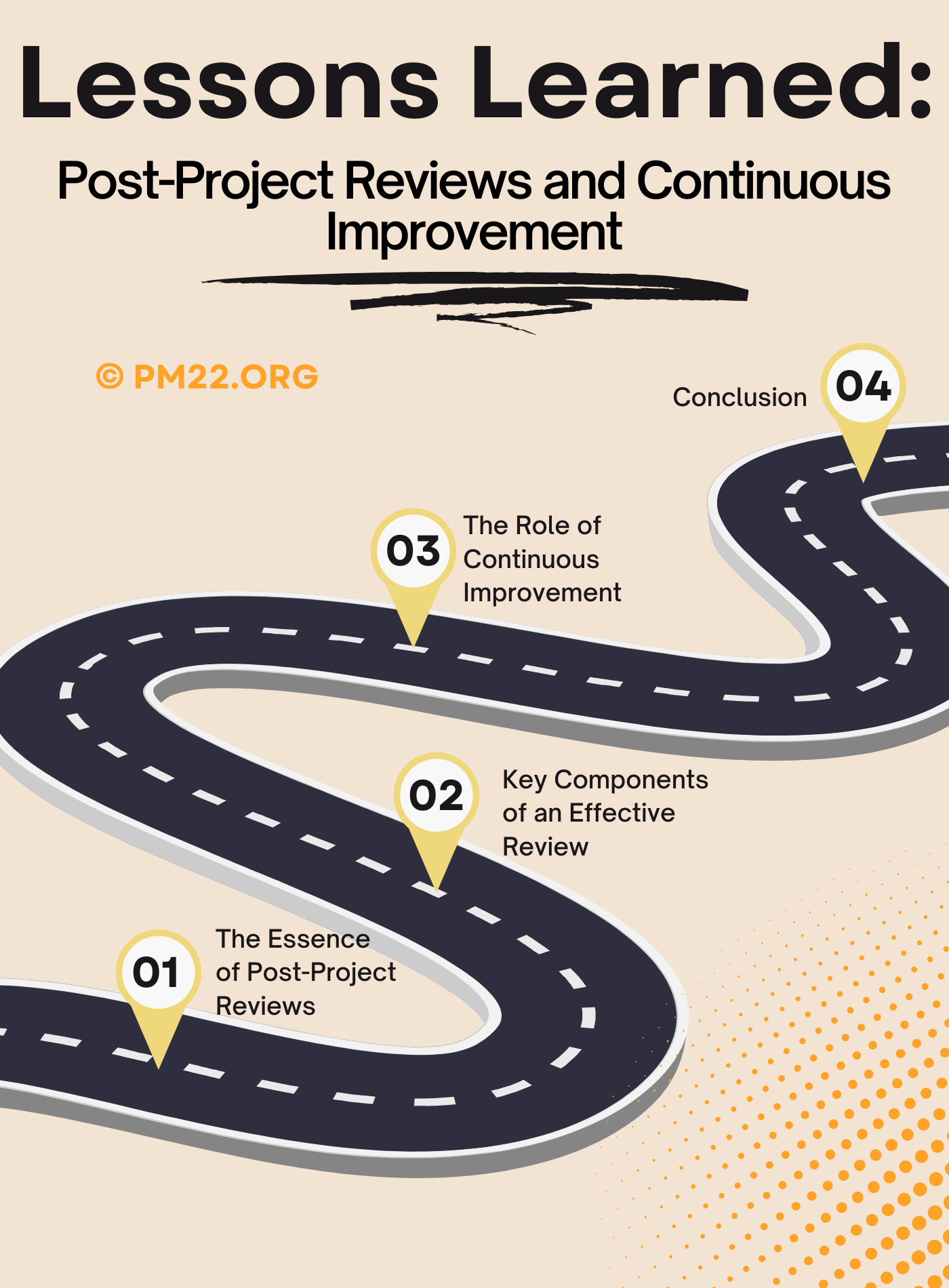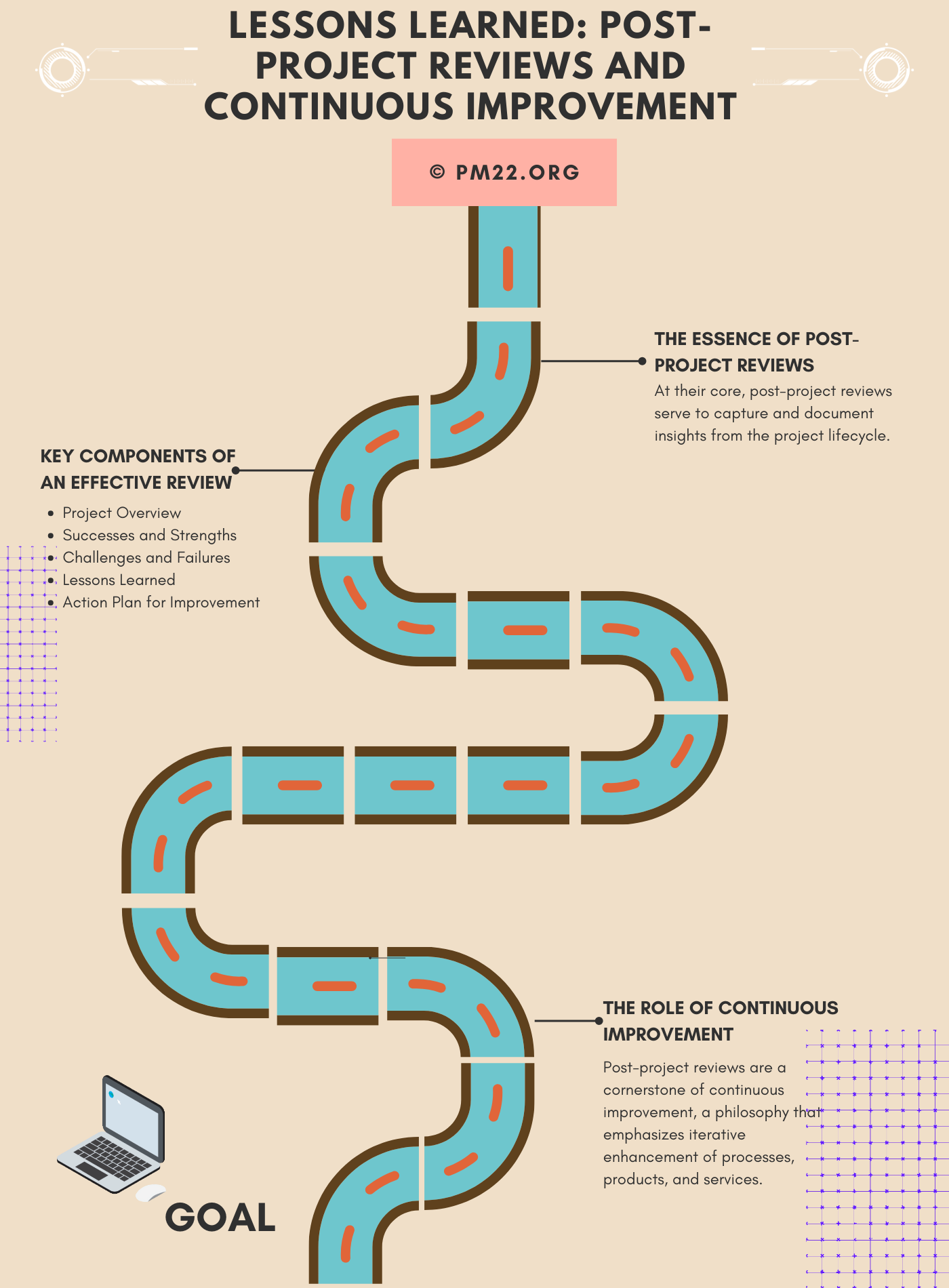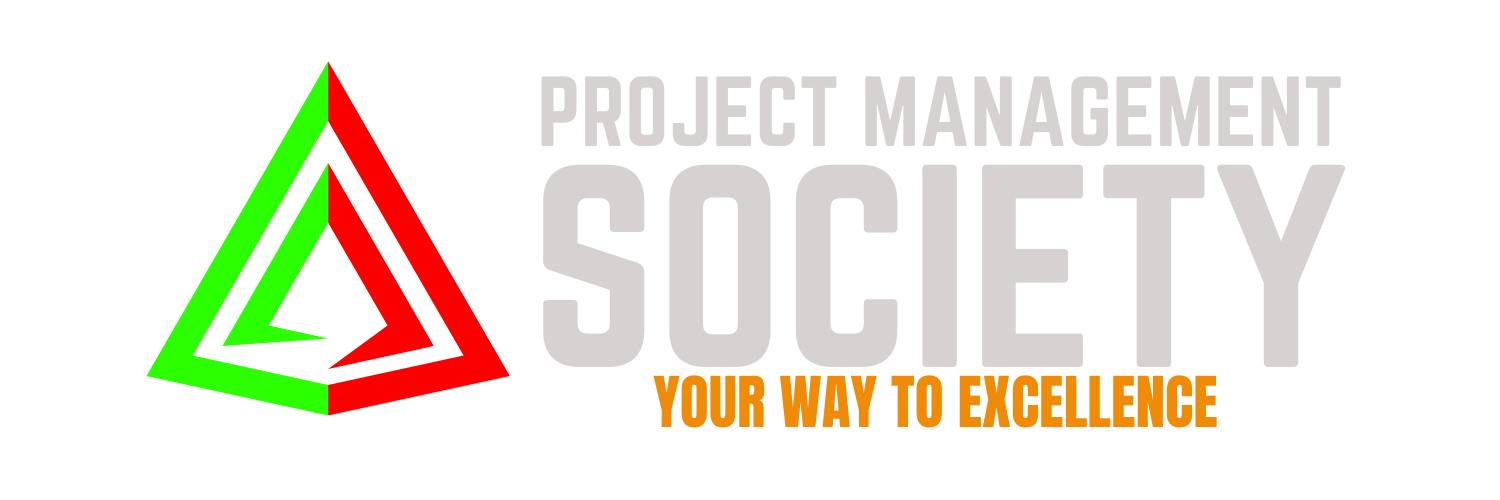 In the fast-paced world of project management, post-project reviews stand as crucial touchstones for organizational growth and development. These reviews, often referred to as “lessons learned” sessions, provide a structured opportunity to reflect on completed projects, identify successes, uncover pitfalls, and foster a culture of continuous improvement. When executed effectively, they can transform an organization’s approach to future projects, enhancing efficiency, innovation, and team collaboration.
In the fast-paced world of project management, post-project reviews stand as crucial touchstones for organizational growth and development. These reviews, often referred to as “lessons learned” sessions, provide a structured opportunity to reflect on completed projects, identify successes, uncover pitfalls, and foster a culture of continuous improvement. When executed effectively, they can transform an organization’s approach to future projects, enhancing efficiency, innovation, and team collaboration.
The Essence of Post-Project Reviews
At their core, post-project reviews serve to capture and document insights from the project lifecycle. This process involves gathering feedback from all stakeholders, including team members, clients, and suppliers. The objective is not only to celebrate the project’s achievements but also to scrutinize what did not go as planned. This dual focus helps create a balanced view that acknowledges both the strengths and weaknesses encountered.
CLICK HERE TO DOWNLOAD 300+ PROJECT MANAGEMENT TEMPLATES & DOCUMENTS IN EXCEL
The first step in a successful post-project review is comprehensive preparation. This includes defining the scope of the review, preparing a set of questions or themes to guide the discussion, and ensuring that all relevant data and metrics are available. This preparation sets the stage for a thorough and honest evaluation.
Key Components of an Effective Review
An effective post-project review typically encompasses several key components:
- Project Overview: Summarizing the project’s objectives, scope, timeline, and budget provides context for the review. This overview helps in aligning everyone’s understanding of the project’s intended outcomes versus the actual results.

- Successes and Strengths: Identifying what worked well is as important as recognizing mistakes. Celebrating successes boosts morale and highlights strategies that can be replicated in future projects.
- Challenges and Failures: Analyzing what went wrong without assigning blame is crucial. This section should delve into root cause analysis to understand the underlying issues that led to project challenges.

- Lessons Learned: Documenting insights gained from both successes and failures ensures that valuable knowledge is retained. This often includes specific recommendations for future projects.
- Action Plan for Improvement: The review should conclude with a concrete action plan outlining steps for improvement. This plan should assign responsibilities and set timelines to ensure that lessons learned translate into actionable changes.
CLICK HERE TO DOWNLOAD 300+ PROJECT MANAGEMENT TEMPLATES & DOCUMENTS IN EXCEL
The Role of Continuous Improvement
Post-project reviews are a cornerstone of continuous improvement, a philosophy that emphasizes iterative enhancement of processes, products, and services. Continuous improvement relies on the systematic identification and implementation of changes that lead to better outcomes over time.
Implementing lessons learned requires commitment at all organizational levels. Management must foster an environment where feedback is valued, and team members should be encouraged to contribute openly and honestly. Moreover, integrating these lessons into project management methodologies and training programs can institutionalize best practices and prevent the recurrence of past mistakes.
Technological tools can also play a significant role in facilitating continuous improvement. Project management software often includes features for documenting lessons learned and tracking improvement actions. These tools ensure that insights are easily accessible and can be referenced in future projects.
Conclusion
Post-project reviews are more than a procedural step; they are a vital part of a learning organization’s DNA. By systematically reflecting on past projects, organizations can harness valuable insights that drive continuous improvement. This ongoing process not only enhances project outcomes but also builds a resilient, adaptable, and innovative organizational culture.
Ultimately, the lessons learned from post-project reviews create a feedback loop that propels organizations forward, turning every project, regardless of its immediate success or failure, into a stepping stone for future achievements.
